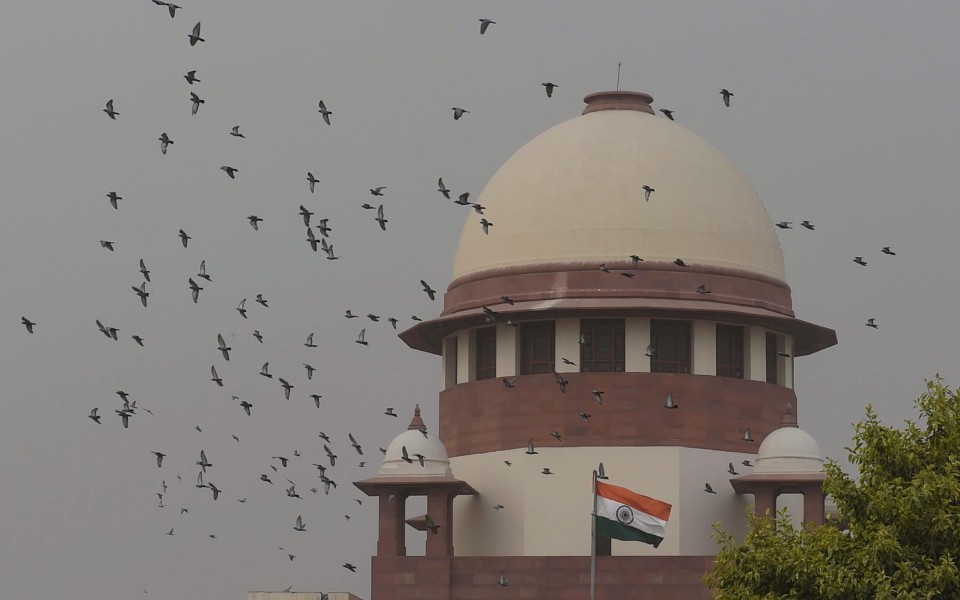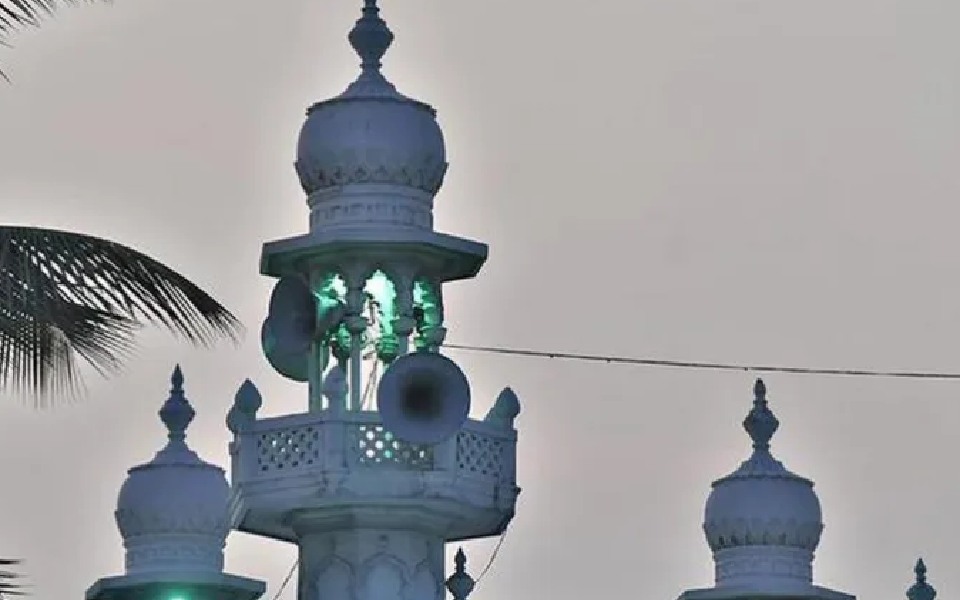New Delhi, Jan 24 (PTI): Castigating a man for throwing out his estranged wife and minor daughters from the matrimonial home, the Supreme Court on Friday said such behaviour eliminated the basic difference between human and animal.
A bench of Justices Surya Kant and N Kotiswar Singh asked, "What kind of a man you are if you don't even care for your minor daughters? What wrong have the minor daughters done in coming to this world?"
An irked bench went on, "He was only interested in having multiple children. We cannot allow such a cruel man to enter our court at all. Sara din ghar pe kabhi saraswati puja and kabhi laxmi puja. Aur fir yeh sab (you worship Goddess Saraswati and Laxmi all day, and then you do such things)."
Anguished with the facts of the case, the bench said it would not allow the man to enter court unless he paid the maintenance or part with some agricultural land to his daughters and the wife.
"Ask this man to part with some agricultural land or fixed deposit or maintenance amount in the name of his daughters and then the court may think of passing some favourable order," the bench told his counsel.
The court said, "What is the difference between an animal and a man who does not take care of minor daughters."
A trial court convicted the man from Jharkhand for torture and harassment of his estranged wife for dowry.
He was also accused of fraudulently getting her uterus removed and marrying another woman later.
The bench asked the man's counsel to inform the court the maintenance he was willing to pay the minor daughters and the estranged wife for their future upkeep.
The bench posted the hearing on February 14.
The trial court convicted him in 2015 under Section 498A of IPC (subjecting married women to cruelty) and sentenced him to 2.5 years rigorous imprisonment besides a Rs 5,000 fine.
The case was registered in 2009 and he served 11 months in custody.
On September 24, 2024, the Jharkhand High Court brought down the punishment to 1.5 years and enhanced the fine to Rs 1 lakh.
The couple married in 2003 and the estranged wife remained in the matrimonial home for about four months following which she was reportedly tortured over a Rs 50,000 dowry demand.
The high court said several panchayat meetings were convened but the husband was adamant in not following its decisions.
On June 30, 2009, it came on record, he had married another woman, and ousting his estranged wife from the matrimonial home along with the daughters.
The high court said there did not exist medical evidence to show the removal of the estranged wife's uterus but she supported her allegations.
It also said there was no cogent material to show he had remarried and therefore was not convicted under Section 494 of the IPC (bigamy).
Let the Truth be known. If you read VB and like VB, please be a VB Supporter and Help us deliver the Truth to one and all.
Prayagraj, Jan 24 (PTI): The Allahabad High Court on Wednesday dismissed a writ petition seeking direction to the state authorities to permit the mounting of loudspeakers on a Masjid.
The court observed that the religious places were for offering prayers, therefore the use of loudspeakers was not a matter of right.
Dismissing the writ petition filed by Pilibhit-resident Mukhtiyar Ahmad, a two judge-bench, comprising Justice Ashwani Kumar Mishra and Justice Donadi Ramesh, observed, "Religious places are for offering prayers to the divinity and use of loudspeakers cannot be claimed as a matter of right, particularly when often such use of loudspeakers create nuisance for the residents".
At the outset, the state counsel objected to the maintainability of the writ on the grounds that the petitioner was neither a mutawalli, nor did the mosque belong to him.
The court also noted that the petitioner did not have locus to file the writ petition.
The term 'locus' is a legal concept that refers to the right of a person or entity to participate in a legal proceeding or bring a lawsuit.





